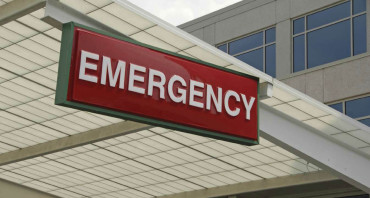Who Is Responsible For Medical Malpractice In An Emergency Room?

Every day, sick and injured people go to the emergency room for medical care, and, unfortunately, some of them end up worse off due to medical errors. When a doctor, nurse, or other medical staff member makes a mistake or acts negligently, the injured person may have a valid medical malpractice claim and might be able to seek compensation for the damages they suffered.
Can Hospitals Be Sued For Emergency Room Malpractice?
Frequently, the hospital is liable for medical malpractice in the emergency room, whether a doctor or other medical staff commits it. Typically, it's different for doctors in non-emergency situations because many hospital doctors are not the hospital's actual employees. Instead, they are independent contractors working there. However, in the emergency room, this changes because patients who go to the ER are not seeking help from a particular doctor. There is usually no opportunity for the hospital to properly inform patients that the doctor treating them is an independent contractor. As a result, the hospital is likely to be held responsible for ER doctors' medical malpractice.
How Do You Prove Emergency Room Medical Malpractice?
To win an ER medical malpractice lawsuit, plaintiffs must prove several elements, including:
- A doctor-patient relationship exists – This point is typically simple to prove because there is some form of documentation that patients sign or agree to when they are treated at an emergency room. Demonstrating that a doctor-patient relationship exists establishes that the doctor has a duty of care toward the patient.
- Negligence occurred – In a medical malpractice case, including those that happen in an emergency room, it must be shown that the liable medical professional violated the accepted standard of care when treating the patient. The standard of care refers to the quality of care that a competent doctor would have provided in a similar situation. This element is often the most challenging point to prove in a medical malpractice case.
- The patient sustained an injury – To receive a financial recovery in a medical malpractice case, the patient must have suffered injury or harm due to negligence.
- Damages related to injury – This may include lost wages, the cost of treatment to correct the mistake or negligence, expenses for additional medical care needed because of a misdiagnosis, and the effects of pain and suffering on the patient.
What Are The Legal Options For Victims Of ER Malpractice?
Emergency room injuries can result in emotional, physical, and financial difficulties for patients and their families. While it may be a hard time to consider seeking legal help, there are time limits regarding how long someone has to file a medical malpractice claim. Generally speaking, in Pennsylvania, the statute of limitations is two years from the time of injury. As a result, these types of claims need to be filed as soon as possible.
If medical malpractice is proven, patients may be able to seek compensation for the following damages related to the injuries they suffered:
- Lost wages (current and future)
- Medical expenses (current and future)
- Long-term care expenses
- Long-term disability
- Rehabilitation
- Pain and suffering
- Loss of enjoyment of life
- Funeral and burial costs (if the incident resulted in a death)
Contact Ross Feller Casey About Your ER Malpractice Claim
Going to the emergency room can mean trusting doctors and nurses to save your life. While some emergency medical situations will not have positive outcomes even with high care standards, some outcomes are completely avoidable.
Emergency rooms are often busy and hectic environments, with a lot of activity. However, that doesn’t mean you have to settle for lower levels of care. Doctors and nurses in the ER are held to the same standards as medical professionals in other environments.
If you or your loved one has been injured due to negligence in an ER, you might be able to file a medical malpractice lawsuit against the responsible parties. You must speak with an experienced malpractice attorney sooner rather than later.
The experienced attorneys at Ross Feller Casey have an unmatched record of successfully litigating all types of medical malpractice lawsuits, including those involving emergency room negligence. Our firm has a team of top doctors right on staff to help determine if negligence occurred and prove your case. While monetary compensation cannot reverse the harm you’ve suffered, it can help ease the financial burden your injuries have caused.
Call our office today to arrange an appointment for a free case evaluation. Our medical malpractice attorneys work on a contingency basis, so you won’t pay anything until a financial recovery is made.
Disclaimer: Ross Feller Casey, LLP provides legal advice only after an attorney-client relationship is formed. Our website is an introduction to the firm and does not create a relationship between our attorneys and clients. An attorney-client relationship is formed only after a written agreement is signed by the client and the firm. Because every case is unique, the description of awards and summary of cases successfully handled are not intended to imply or guarantee that same success in other cases. Ross Feller Casey, LLP represents catastrophically injured persons and their families in injury and wrongful death cases, providing legal representation in Pennsylvania and New Jersey.





